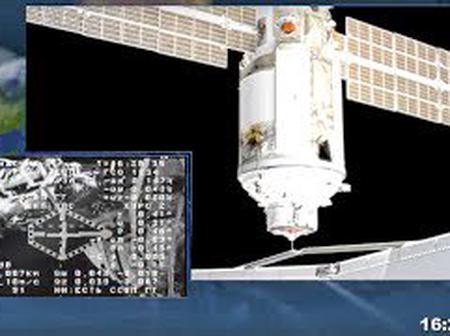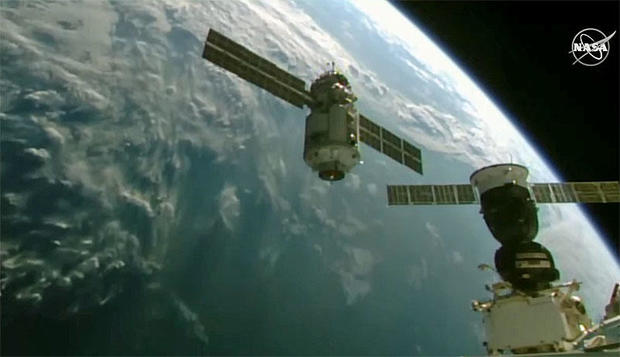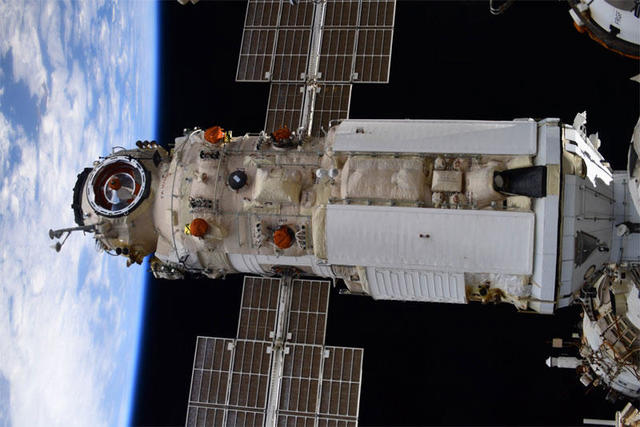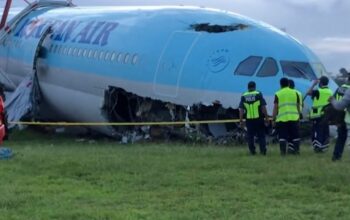New Russian lab’s thrusters briefly knock space station out of orientation–
“Space station program manager Joel Montalbano said the station’s seven crew members were never in any danger.“
THE FOLLOWING WRITTEN CONTENT BY WILLIAM HARWOOD

A heavyweight Russian laboratory module that experienced a variety of problems after launch last week docked at the International Space Station on Thursday. But in a moment of unexpected drama, inadvertent thruster firings briefly knocked the sprawling complex out of its normal orientation.
Space station program manager Joel Montalbano said the station was maintaining its orientation, or “attitude,” using massive NASA-supplied gyroscopes when the thruster firings suddenly began at 12:34 p.m. EDT, about three hours after the 44,000-pound Nauka multi-purpose laboratory glided in for docking.

The gyros were unable to counteract the unwanted push from Nauka’s jets, and the space station, stretching the length of a football field with a mass of more than 930,000 pounds, began tilting away from its normal orientation.
Attitude control was quickly handed off to more effective rocket motors in the Russian Zvezda module, where Nauka was attached. A few minutes later, thrusters in a Progress cargo ship docked on the other side of Zvezda kicked in with additional muscle.
The space station ended up tilted up about 45 degrees from its earlier orientation, moving at one point at roughly half a degree per second. But in a little more than an hour, the station was back in its normal orientation, apparently none the worse for wear.
“We haven’t noticed any damage to the ISS,” Montalbano said in an afternoon teleconference. “One of the things we do after a dynamic event like this is go ahead and sit down with our structural loads team and review all the data, go pull all the telemetry and do an assessment. And so that’ll be the next step.”
A “spacecraft emergency” was declared at the outset, but that was standard procedure in such cases, giving the lab complex priority over other spacecraft using NASA’s satellite communications network. Montalbano said the station’s seven crew members were never in any danger. Read more from CBS.





